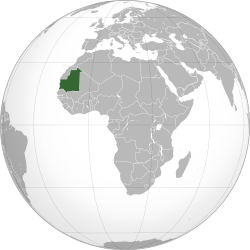Mauritania Braces For War Next Door
By Magharebia
By Jemal Oumar and Bakari Gueye
Mauritania, like many of its Maghreb neighbours, has decided to reinforce the protection of its borders in light of recent developments in Mali.
Residents of Mauritanian border towns with Mali are growing increasingly apprehensive.
Following bitter fighting against the Movement for the National Liberation of Azawad (MNLA), al-Qaeda-affiliated Ansar al-Din took control at the end of November of the Malian city of Lere, only 70 kilometres from the strategic Mauritanian town of Fassala Nere.

With a war being prepared and the uncertainty of Mauritania’s participation, al-Qaeda in the Islamic Maghreb (AQIM) decided to occupy the border town as a message to Mauritania.
“A tacit truce has been observed for several months between AQIM and the Mauritanian army,” said military expert Eli Ould Maghlah. “Mauritania had in fact decided not to take action against the terrorists as long as they avoid establishing camps inside Mali within 200 kilometres from the border. For its part, AQIM has refrained from attacking Mauritania.”
He added that units of the Mauritanian army began intensifying their actions and mobilising troops along the border. “They have also increased their search and inspection operations of those passing through,” the expert said.
“The local population has become accustomed to these military activities, and now accommodates this routine,” Abdullah Ould Sid al Mokhtar, a local notable in the border town of Bassiknou, told Magharebia. “This stems from their perception that they are within a stone’s throw of a fierce enemy. This enemy is represented by terrorists able to infiltrate at any moment through the border.”
Khaled Abou El-Abbas, the terrorist also known as “Laaouar”, warned against an intervention in an interview al-Akhbar published November 27th. “You can avoid the outbreak of the war, but who can contain its consequences or prevent its expansion to other areas?” he stated.
Political analyst Mohamed Ould al-Aqel noted that “if Mauritania and Algeria manage to protect their borders, then terrorist groups will find themselves besieged from all sides.”
“Thus the hunt for their elements will be easy, for they will be chased on several fronts. However, I find it likely that these two countries will intervene indirectly by responding to intrusion attempts, no doubt conducted by terrorists being attacked from the south by African troops,” Ould al-Aqel added.
The impact of AQIM on Mauritanian youth continues to grow, however, as employment opportunities remain scarce.
“After their training, many young Mauritanians find themselves unemployed,” explained Mauritanian journalist Moussa Ould Hamed. “AQIM remains their main recruiter, who, moreover, promises a future in the afterlife. This is why the ranks of AQIM are bulging with young Mauritanians.”
La Tribune director Mohamed Vall Ould Oumère noted that AQIM’s first recruitment took place back in 2003, when “some young Mauritanians, often considered with no use to their country, and having sometimes served prison sentences on charges of belonging to the Islamist movement, started joining the training camps of GSPC in the Sahara of Mali”.
The phenomenon grew with the advent of civilian rule in 2007 that freed the main elements of the Islamist movement, Ould Oumère said.
